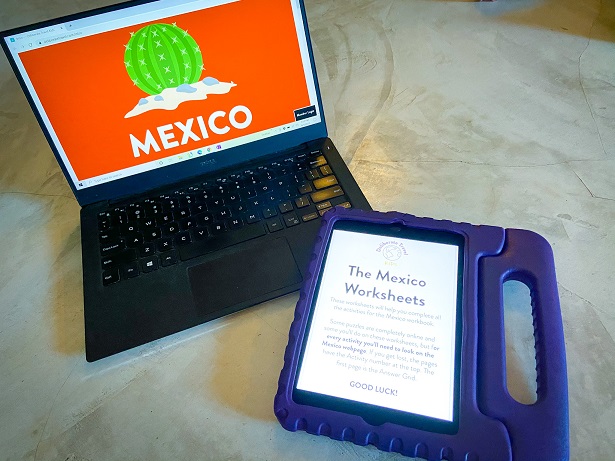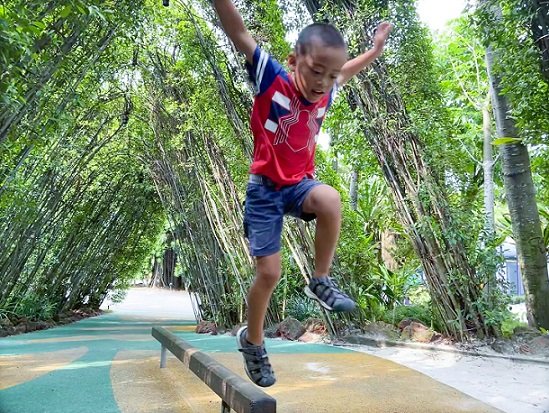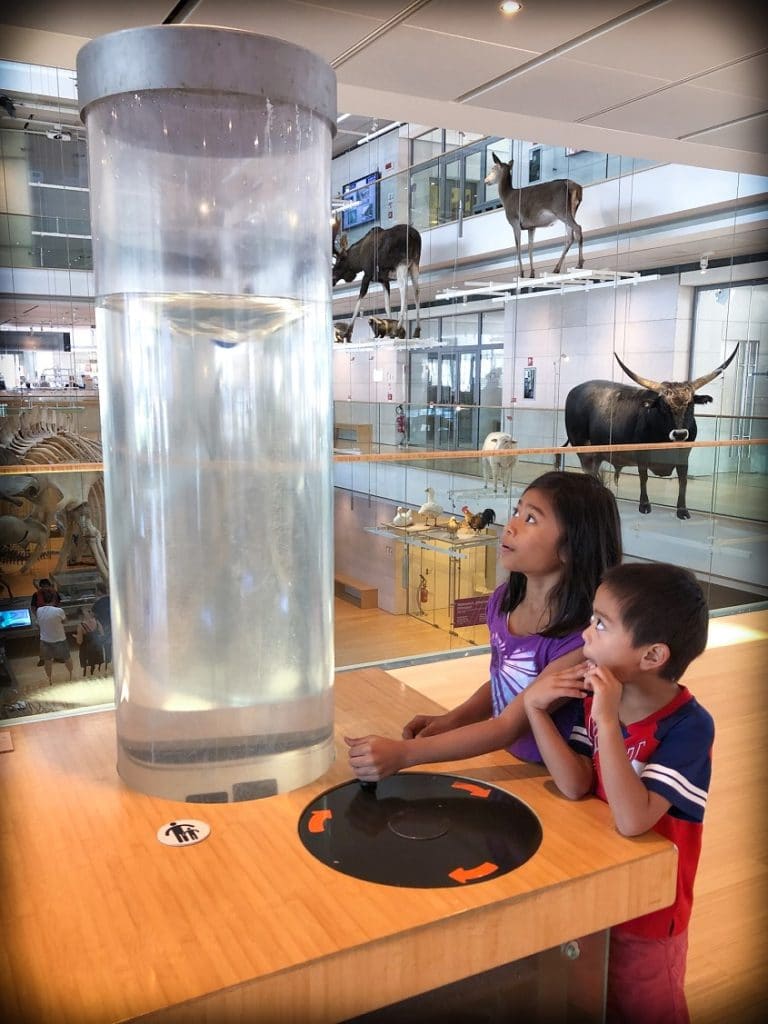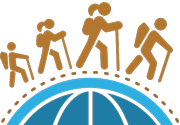Episode 2: Is worldschooling right for your child?

In this episode of Worldschooling Q&A, Astrid and Clint dive into a question many parents ask when first exploring worldschooling: Is worldschooling right for us? How do I know if this is a good fit for my child?
Worldschooling Q&A – Episode 2
Hosts: Astrid & Clint, creators of The Wandering Daughter
Title: Episode 2: Is worldschooling right for your child?
Episode Summary
Drawing from their four years of full-time travel across 18 countries and six continents, Astrid and Clint discuss the importance of considering your child’s age, learning style, emotional and physical readiness, and overall family dynamics. They share personal stories, reflections, and encouragement for families of all backgrounds who are wondering whether worldschooling might work for them.
Worldschooling age considerations
When parents ask “is worldschooling right for my child,” age is often the first concern. The truth is that kids of all ages can benefit, but each stage of childhood comes with its own set of considerations.
Is worldschooling right for young kids?
Families often wonder if it’s worth worldschooling with very young children, since they may not remember everything. In our experience, even if the memories fade, kids still carry lasting lessons like adaptability and confidence. Those skills grow stronger the earlier they’re nurtured.
Is worldschooling right for older children?
For older kids, worldschooling age considerations shift toward friendships, social life, and independence. Parents may worry about pulling them away from peers, but travel offers new opportunities to connect with others, whether through local families or worldschooling hubs. These connections add richness that traditional schooling sometimes can’t provide.
Age is not a barrier
Age does present different challenges, from car seats and naps to teens wanting more autonomy. But age itself is not a barrier when asking is worldschooling right for my child. With flexibility and thoughtful planning, families at any stage can make it work.
Is worldschooling right for your kids' learning styles?
Another way to think about how to know if worldschooling is right is by looking at your child’s learning style. Since worldschooling adapts easily, families can match travel activities to the way their kids learn best.

Observing what engages your child
Some kids prefer books and videos, while others thrive on hands-on activities. In Mexico, our kids enjoyed doing a chocolate-making workshop, asking questions about the process. And in Indonesia, visiting a village to learn about rice farming sparked a similar curiosity. These moments showed us that worldschooling learning styles can be deeply personal.
Matching activities to learning styles
One of the worldschooling pros and cons is deciding how much structure to add. Families who love museums and tours may gravitate toward formal learning, while others might focus on outdoor exploration or creative workshops. Matching your travel experiences to your child’s natural learning preferences makes the journey more rewarding.
The flexibility advantage
Flexibility is what makes worldschooling so adaptable. Whether your child learns by reading, doing, or listening, you can adjust your travels to suit them. That’s why when parents ask is worldschooling right for my child, they eventually find reassurance in the freedom it offers.
Physical and emotional considerations
When deciding if worldschooling is right for your child, parents also need to weigh physical and emotional needs. Travel requires stamina, adaptability, and routines that keep children grounded.

Physical readiness for travel
Travel often involves walking, carrying bags, or adjusting to new foods and climates. These are important worldschooling age considerations, especially for younger kids. While it can feel daunting, pacing the trip and planning around your child’s energy level helps ease the challenges.
Is worldschooling right for your's family's emotional wellbeing?
Children also need emotional support on the road. They may miss extended family or familiar routines. Building in video calls, journaling, or quiet downtime can help provide stability. These strategies can tip the balance when weighing worldschooling pros and cons.
Growing resilience and confidence
Despite the challenges, worldschooling often strengthens emotional wellbeing. Kids build resilience when adapting to new settings and confidence when engaging with other cultures. These benefits are powerful reminders for parents wondering how to know if worldschooling is right for their child.
Submit your worldschooling questions here!
Episode guide
Is age a factor in worldschooling?
- Age matters for planning, but it shouldn’t be a barrier.
- Kids gain skills like adaptability and social awareness regardless of memory.
- Younger kids require more logistics (like car seats), while older kids have social and emotional needs to consider.
Understanding learning styles
- Every child learns differently—some thrive on reading, others on hands-on experiences.
- Worldschooling allows families to tailor learning through workshops, cultural experiences, and immersive activities.
Emotional and physical readiness
- Travel can be emotionally and physically demanding.
- It’s important to plan rest, manage expectations, and consider any special needs.
- For some families, worldschooling provides a better environment than traditional systems.
The diversity of the worldschooling community
- There is no one right way to worldschool.
- Families of all kinds—solo parents, large families, LGBTQ+, neurodiverse, faith-based, and multicultural—are thriving in this space.
- Many worldschoolers aren’t publicly visible, but the community is broad and inclusive.
Chapters
00:00:00 – Introduction and welcome
00:00:55 – Today’s question: Is worldschooling right for my child?
00:01:11 – Considering age and developmental stages
00:01:54 – Traveling with young children: what they remember and what they gain
00:02:43 – Logistics of traveling with kids
00:03:27 – The changing needs of older children
00:04:04 – Why age shouldn’t be a limiting factor
00:04:07 – Learning styles and how your child learns best
00:05:04 – Hands-on learning examples from Mexico and Indonesia
00:06:09 – Physical and emotional readiness for travel
00:06:53 – Navigating emotional challenges as a family
00:07:51 – For some families, travel is a better fit than staying home
00:08:34 – The emotional reality of full-time travel
00:09:09 – Diversity in the worldschooling community
00:10:02 – Families of all backgrounds and needs can worldschool
00:10:50 – Not all worldschoolers are visible online
00:11:13 – Final thoughts and how to connect

Further resources
- What is worldschooling?
- 7 challenges of traveling with kids (and how to solve them)
- 5 harsh truths about long term family travel
- 9 easy tips to help your child become an avid traveller
- 5 easy tips for teaching girls to be bold travelers: raising brave kids
Support the podcast
- Join The Wandering Daughter on Patreon for episode transcripts, extra resources, and live office hours with Astrid and Clint.
- Follow and subscribe on Spotify, Apple Podcasts, and YouTube.
- Leave a five-star review to help others discover the podcast.
- Submit your worldschooling questions to our podcast page.





